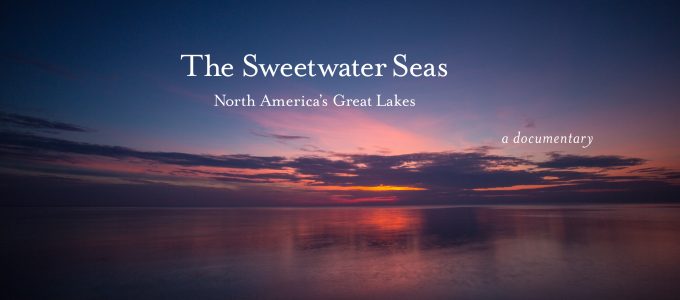The Sweetwater Seas in 100 Words is a quick introduction to the feature-length documentary film. In it we reveal the beauty, majesty, and challenges faced by the Great Lakes, which we will cover fully in the hour-long documentary. We plan to enter this short version in this year’s “100-Word Film Festival.”
We have released several quick and delicious film clips for our documentary The Sweetwater Seas – North America’s Great Lakes so far and plan on releasing many more this summer which will be small episodes from those who live and work on the Great Lakes as we tell their stories. Some will be about the challenges the lakes face and have faced in the past, some about historic past events on the lakes, travelling the lakes and some will be about the beauty and majesty these lakes encompass.
THE SWEETWATER SEAS is a feature documentary that integrates science and fine-art videography to explore one of North America’s wonders. The film examines the latest thinking about the environmental sustainability of the Great Lakes Watershed and seeks to engage viewers into making a difference. Although 42 million people live within the Watershed, most have never been around their own lake, much less all five. We will take them on a voyage of discovery to rival Champlain’s.
The project will reveal the natural landscape and its geological history, the watershed’s cityscapes, and its vast industrial and agricultural areas. Humans started living near these immense bodies of water tens of thousands of years ago, but it is only in the last few centuries that human activity has impacted the environment of the lakes. To engage viewers THE SWEETWATER SEAS will offer both images of great beauty in the natural world that surrounds the lakes as well as video of the tides of pollution and invasive species that threaten this magnificent resource. By using the voices of scientists, environmentalists, political leaders, engaged corporations and everyday people around the lakes, the story of these extraordinary bodies of water—their history, their importance and threats to their health—will be explored and explained.
We hope you’ll enjoy each and every segment.
Cheers,
Richard
